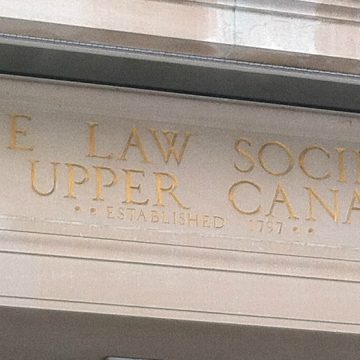The vast majority of LSUC benchers condemned the proposed law school at Trinity Western University during convocation this morning, on the basis that its community covenant — which prohibits same-sex intimacy — is outright discrimination.
LSUC held the special convocation to debate whether it will accredit the law school in Ontario.
Unless the school amends its community covenant, approving the law school would create a “path to licensing that is open to some and not to others,” said bencher Paul Schabas, adding that such a result would not be in the public interest. “Trinity Western can discriminate all it wants on its private campus, but when it asks us to accept their school . . . we have to apply our own boundaries. We cannot ignore the discriminatory nature of the institution.”
Bencher Malcolm Mercer said that the Law Society, as the gatekeeper to the legal profession, cannot approve a law school that would “effectively limit or impair the admission” of one group of people from earning a legal education.
Last month, Trinity Western President Bob Kuhn claimed said that, in fact, the school’s community covenant is protected by the freedom of religion. He went on to say that denying accreditation to TWU’s law school would be “the height of discrimination.”
Several benchers, however, reversed that logic, arguing that the covenant is analogous to racism.
“We wouldn’t be having this debate if Trinity Western excluded Blacks or persons of, say, Chinese descent,” said Schabas. “This is just the same.”
Similarly, bencher Linda Rothstein saw no distinction between Trinity Western’s community covenant and a hypothetical school that “required First Nations not to engage in sacred practices while they were students at that university.”
So far, the school has received approval from the Federation of Law Societies and the British Columbia government — with the Law Society of B.C. set to make a decision tomorrow.
LSUC invited TWU to provide a written response, based on today’s debate, to be taken into account when LSUC votes on the accreditation on April 24.


